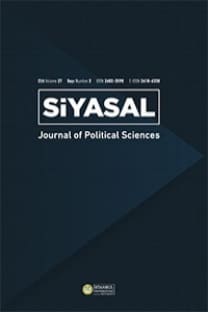Poland’s Foreign Policy Under the Rule of the Law and Justice Party
Poland was the first country in Central Europe to start dismantling the political system of ‘real socialism’ in 1989 and has become a pioneer of democratic and market reforms. After 10 years it was admitted to NATO and after 15 years to the European Union. Then, gradually, populism, nationalism and Euro-skepticism began to grow in Poland, which was evident in the years 2005-2007, during the first edition of rules of the conservative-nationalist Law and Justice (PiS) party. After the next eight years of the pragmatic approach of the Polish governments towards European integration, the PiS assumed full power in the country in 2015. The new president and the PiS government began systematic changes in domestic and foreign policy. Populism, illiberalism and authoritarianism began dominating in Polish internal politics, and nationalism and Euro-skepticism in foreign policy. The most important new phenomena in the foreign policy of the PiS government are: (a) the bi-lateralization and militarization of security policy based on the strategic partnership with the US; (b) Euroskepticism: anti-Brussels posturing and disputes with Germany and France; (c) Poland’s nationalistic and great-power approach to Russia; and (d) Three Seas Initiative as a dream of Poland’s greatness. The consequences of this Poland’s politics are detrimental to itself and to the international environment. It has reduced the importance of Poland as a state in Europe and the world. The world’s perception of Poland is increasingly unfavorable among democratic countries, and more favorable among other illiberal countries. But it is not favorable with all illiberal countries, because the nationalism that accompanies Polish illiberalism makes it impossible to improve relations with other not fully democratic or downright undemocratic countries, especially Poland’s eastern neighbors. Poland’s foreign policy is facing serious challenges, some of which Poland created on its own and is unable to address effectively. This means that there is a growing problem of incompatibility between Poland’s policies and the changing international order.
Keywords:
Poland, Illiberalism, Foreign policy, the European Union, the USA, Russia 3SI,
___
- Andor, L. (2019). Nacjonalizm, demagogia, rasizm, ksenofobia, autorytaryzm. Co nazywamy populizmem? Krytyka Polityczna, 3 September.
- Benjamin, D. (2021, May 1). Biden Wants to Boost Democracy. He Should Shelve the Summit and Look to Europe. Politico. Retrieved from https://www.politico.com/news/magazine/2021/01/05/biden-wants-to-boost-democracy-he-should-shelve-the-summit-and-look-to-europe-454823
- Biden potwierdza wstrzymanie wycofania wojsk z Niemiec. (2021, February 5). Defence 24, Retrieved from https://www.defence24.pl/biden-potwierdza-wstrzymanie-wycofania-wojsk-z-niemiec
- Cowell, A. (2018, September 19). Fort Trump? Poland Makes a Play for a U.S. Military Base. The New York Times.
- Dahrendorf, R. (1990). Reflections on the Revolutions in Europe: In a Letter Intended to Have Been Sent to a Gentleman in Warsaw. New York: Times Books.
- Egipt przekazał mistrale Rosji za dolara? TVN24, PAP, 20 October 2016. Retrieved from https://www.tvn24.pl/wiadomosci-ze-swiata,2/macierewicz-jest-przekonany-ze-egipt-sprzedal-mistrale-rosji,685615.html
- Galston, W.A, (2018). Anti-Pluralism: The Populist Threat to Liberal Democracy.New Haven: Yale University Press.
- Glasius, M. (2018). What Authoritarianism is… and is Not: Practice Perspective. International Affairs 94(3), 515–533.
- Grudziński, P. (2008). Państwo inteligentne. Polska w poszukiwaniu międzynarodowej roli. Toruń: Adam Marszałek.
- Ikenburry, G.J. (2018). The End of the Liberal International Order. International Affairs, 94(1), 7-23.
- Kaczyński, J. (2011, October 9). Przyjdzie dzień, że w Warszawie będzie Budapeszt. TVN24.pl. Retrieved from https://tvn24.pl/polska/przyjdzie-dzien-ze-w-warszawie-bedzie-budapeszt-ra186922-3535336
- Kundera, M. (1983, May 27). Un occident kidnappé ou la tragédie de l’Europe centrale. Le Débat, 27, 3-23.
- Kupchan, C.A. (2010, August 20). As Nationalism Rises, will the European Union Fall? The Washington Post.
- Kupchan, C.A. (2012). No One’s World: The West, the Rising Rest and the Coming Global Turn. Oxford: Oxford University Press.
- Levitsky, S., & Ziblatt, D. (2018). How Democracies Die. New York: Crown.
- Mearsheimer, J.J. (2018). The Great Delusion: Liberal Dreams and International Realities. New Haven: Yale University Press.
- Mearsheimer, J.J. (2019). Bound to Fail: The Rise and Fall of the Liberal International Order. International Security, 43(4), 7–50.
- Pankowska, M., (2021, April 4). Morawiecki, Orbán i Salvini chcą „renesansu Europy”. Będzie sojusz PiS z kolegami Putina? Retrieved from https://oko.press/morawiecki-orban-i-salvini-chca-renesansu-europy-bedzie-sojusz-pis-z-kolegami-putina/
- Poland’s New Front: A Government’s War against Civil Society (Report), Human Rights First. America ideals. Universal values, Aug. 2017, pp. 5-7. Retrieved from https://www.humanrightsfirst.org/sites/default/files/Poland-Report-August-2017.pdf.
- Radziwinowicz, W. (2019, May 21). Rosyjski politolog dla “Wyborczej”: Kreml na Orbana i Salviniego nie liczy, ale Kaczyńskiego szanuje’. Gazeta Wyborcza.
- Roth, K. (2019). World’s Autocrats Face Rising Resistance, Human Rights Watch. World Report 2019. Retrieved from https://www.hrw.org/world-report/2019/keynote/autocrats-face-rising-resistance
- Stawka większa niż Trybunał. Wywiad z Krzysztofem Szczerskim, ministrem w kancelarii prezydenta Polski, A. Dudy. (2016, April 18). Rzeczpospolita.
- Taylor, P. (2018, October 4). Poland’s Risky ‘America First’ Policy. Politico, Retrieved from https://www.politico.eu/article/poland-risky-america-first-policy-jaroslaw-kaczynski-donald-trump/
- Wanat, Z. (2019, December 29). Polish PM accuses Putin of “deliberate” lies in WWII spat’, Politico.
- Zając, J. (2016). Poland’s Security Policy: The West, Russia, and the Changing International Order. London: Palgrave Macmillan.
- Zięba, R. (2020). Poland’s Foreign and Security Policy: Problems of Compatibility with the Changing International Order. Cham, Switzerland: Springer.
- Zięba, R. (2011). Współczesne stosunki polsko-rosyjskie: uwarunkowania, problemy, implikacje. Przegląd Politologiczny, 3, 35-61.
- Yayın Aralığı: Yılda 2 Sayı
- Başlangıç: 1983
- Yayıncı: İstanbul Üniversitesi
